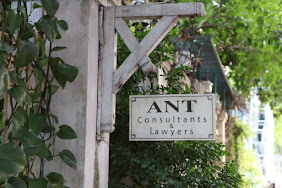Anti-dumping measure imposed on imports of Vietnam is a measure imposed on products that are dumped when being imported to Vietnam, which causes material injury or threaten to cause material injury to domestic industry or retard the establishment of the domestic industry.
Anti-dumping Law Firm in Vietnam
According to regulations
of the law, a product that is determined as dumped if price of this product
imported to Vietnam is less than the comparable price of its like products sold
in the exporting country or third country under the common commercial conditions
or the price that is self-calculated by the investigating authority.
Anti-dumping measures include: Imposition of anti-dumping duty; Undertakings to
implement measures for removing the dumping carried out by organizations and
individuals producing and exporting products subject to the anti-dumping
measures with the investigating authority of Vietnam or domestic producers in
case of the approval of the investigating authority.
In recent years, Vietnam
has regularly used trade remedies to protect the domestic commodity market. In
2020, the State handled 5 new anti-dumping investigations against a lot of
imported goods such as long yarn made of polyester (also known as filament
yarn, PFY yarn) originating from China and India, Indonesia and Malaysia; Liquid
sugar extracted from corn starch (also known as HFCS) originating from China
and Korea; H-shaped steel from Malaysia; Cane sugar comes from Thailand and
Sorbitol sugar comes from China, Indonesia and India.
On June 3, 2021, the
Trade Remedies Administration (Investigating Authority) received the dossier of
the company representing the domestic manufacturing industry (the Requesting
Party), requesting investigation to apply anti-dumping measures on a few of office desk products and office table parts, chairs and chair parts originating from the People’s Republic of China and Malaysia. By June 18, 2021, the
Investigation Authority confirmed that the dossier was complete and valid in
accordance with the law on trade remedies.
According to
regulations, within 45 days from the date of confirmation of complete and valid
dossier, the Investigation Authority will appraise the dossier and submit it to
the Minister of Industry and Trade for consideration to conduct investigation
or not to conduct investigation.
Contents of dossier
appraisal include:
(i) Determining the
legal representative status of the domestic manufacturing industry of the
organization or individual submitting the dossier in accordance with the Law on
Foreign Trade Management;
(ii) Identify evidence
that dumping of imported goods injury or threat of material injury to the
domestic industry or material retardation of establishment of the domestic
industry.
In order to serve the
appraisal work, as well as ensure the legitimate rights and interests of enterprises,
the Investigating Authority requests domestic enterprises producing/trading in
similar goods mentioned above to provide detailed information about the
enterprise, specifically: Information about the enterprise; Design capacity and
quantity of office desks and table parts, chairs and chair parts in 2018, 2019
and 2020; The company’s opinion on the case (agree, oppose, no opinion); Any
other documents/evidence that the enterprises deem relevant to the case.
The deadline for
domestic enterprises to provide the above information is July 16, 2021.
If Client needs any more
information or request for legal advice or potential dispute regarding trade
remedies measures including, anti-dumping, countervailing duty and safeguard
measures or international trade dispute matters, our competition, anti-dumping,
and countervailing duty lawyers in Vietnam of International trade and tax
practice at ANT Lawyers, a law firm in
Vietnam always follow up anti-dumping cases and its development
to update clients on regular basis.





























